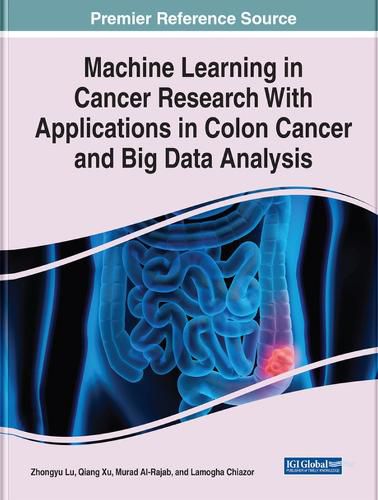Readings Newsletter
Become a Readings Member to make your shopping experience even easier.
Sign in or sign up for free!
You’re not far away from qualifying for FREE standard shipping within Australia
You’ve qualified for FREE standard shipping within Australia
The cart is loading…






This title is printed to order. This book may have been self-published. If so, we cannot guarantee the quality of the content. In the main most books will have gone through the editing process however some may not. We therefore suggest that you be aware of this before ordering this book. If in doubt check either the author or publisher’s details as we are unable to accept any returns unless they are faulty. Please contact us if you have any questions.
Cancer continues to be a growing problem as it is the foremost cause of death worldwide, killing millions of people each year. The number of people battling cancer continues to increase, owing to different reasons, such as lifestyle choices. Clinically, determining the cause of cancer is very challenging and often inaccurate. Incorporating efficient and accurate algorithms to detect cancer cases is becoming increasingly beneficial for scientists in computer science and healthcare, as well as a long-term benefit for doctors, patients, clinic practitioners, and more. Specifically, an automation of computation in machine learning could be a solution in the next generation of big data science technology.
Machine Learning in Cancer Research With Applications in Colon Cancer and Big Data Analysis presents algorithms that have been developed to evaluate big data approaches and cancer research. The chapters include artificial intelligence and machine learning approaches, as well as case studies to solve the predictive issues in colon cancer research. This book includes concepts and techniques used to run tasks in an automated manner with the intent to improve better accuracy in comparison with previous studies and methods. This book also covers the processes of research design, development, and outcome analytics in this field.
Doctors, IT consultants, IT specialists, medical software professionals, data scientists, researchers, computer scientists, healthcare practitioners, academicians, and students can benefit from this critical resource.
$9.00 standard shipping within Australia
FREE standard shipping within Australia for orders over $100.00
Express & International shipping calculated at checkout
This title is printed to order. This book may have been self-published. If so, we cannot guarantee the quality of the content. In the main most books will have gone through the editing process however some may not. We therefore suggest that you be aware of this before ordering this book. If in doubt check either the author or publisher’s details as we are unable to accept any returns unless they are faulty. Please contact us if you have any questions.
Cancer continues to be a growing problem as it is the foremost cause of death worldwide, killing millions of people each year. The number of people battling cancer continues to increase, owing to different reasons, such as lifestyle choices. Clinically, determining the cause of cancer is very challenging and often inaccurate. Incorporating efficient and accurate algorithms to detect cancer cases is becoming increasingly beneficial for scientists in computer science and healthcare, as well as a long-term benefit for doctors, patients, clinic practitioners, and more. Specifically, an automation of computation in machine learning could be a solution in the next generation of big data science technology.
Machine Learning in Cancer Research With Applications in Colon Cancer and Big Data Analysis presents algorithms that have been developed to evaluate big data approaches and cancer research. The chapters include artificial intelligence and machine learning approaches, as well as case studies to solve the predictive issues in colon cancer research. This book includes concepts and techniques used to run tasks in an automated manner with the intent to improve better accuracy in comparison with previous studies and methods. This book also covers the processes of research design, development, and outcome analytics in this field.
Doctors, IT consultants, IT specialists, medical software professionals, data scientists, researchers, computer scientists, healthcare practitioners, academicians, and students can benefit from this critical resource.